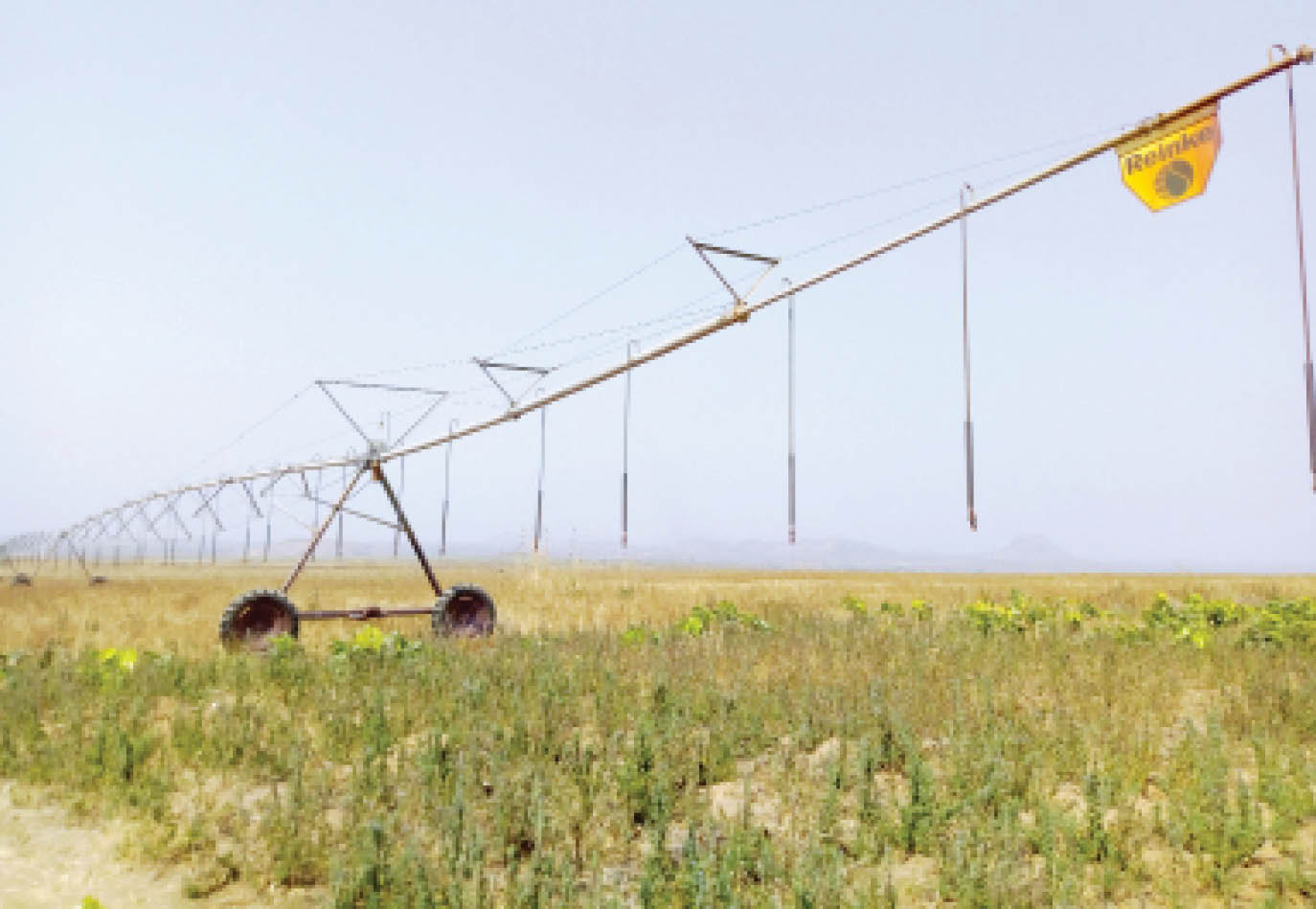Experts explain how to tackle soil salinity in irrigated farms
Soil salinity is a major problem that many farmers do not know or understand how it affects their crop yield and by extension farm income. Soil salinity is a situation where salts accumulate in the root zone of crop plants and adversely affects crop growth and yield. Salinity is a growing problem around the globe, […]

Abandoned gurara irrigation project
Soil salinity is a major problem that many farmers do not know or understand how it affects their crop yield and by extension farm income.
Soil salinity is a situation where salts accumulate in the root zone of crop plants and adversely affects crop growth and yield. Salinity is a growing problem around the globe, especially in soils of the semi-arid and arid regions.
The Nigerian soil scientists warn that excess salts in the root zone of crops/plants disperses soil aggregates, making it difficult for plant roots to extract water and nutrients from the soil. Soil salinization is a major land degradation process that reduces soil fertility and promotes desertification processes in dryland areas.
In many cases, the problem is created by inappropriate agricultural practices by farmers.
Professor Victor Chude, Registrar/CEO Nigeria Institute of Soil Science, while speaking on the 2021 World Soil Day celebration on, “Halt Soil Salinization, Boost Soil Productivity” highlighted the need for people to strengthen efforts to maintain healthy soils and to address soil salinization.
“Salt-affected soils remove farmland from production and reduce agricultural productivity. Salt-affected soils also impact water quality, reduce soil biodiversity, contribute to soil erosion and have a decreased ability to act as a buffer and filter against pollutants. Salt-affected soils reduce the ability of crops to take up water and the availability of micronutrients. Let’s take the opportunity of this day to raise awareness of the importance of soil health,” he said.
So how can the ordinary farmer recognize this problem and what can he do? The Vice President, Soil Science Society of Nigeria (SSSN), Prof. Damician Asawalam, explains what farmers should do to address the problem, which he said is common with irrigated agricultural production.
“Initially when it (salinity) starts, you may not notice it very easily unless you are the type that goes to test your soil from time to time and it is expected that our farmers test the soil at least once in three years. It helps us to monitor the health of the soil.
“Now, if start noticing that salt settles on the surface of your soil, it is an indication that you’re having a problem. It is important at that point to seek advice from a soil scientist, and I would like to mention that right now the Nigeria Institute of Soil Science which has its headquarters in Abuja here has zonal offices in all the six geopolitical zones of the country and have functional offices that can enable farmers access soil information and be able to solve this type of problem. Soil scientists will help farmers to be able to diagnose this type of problem and to proffer solutions to enable them get out of the problem,” he said.
Another factor is the overuse or application of fertilizer in the farm, believing that the more we add it to our crop, the more it enables us grow more food. But Prof Asawalam says it doesn’t work like that, adding “chemicals are chemicals and if you use them in more quantities than is required, or you use them wrongly, they will produce a negative effect.”
In terms of management, the soil scientist said if it is something that has occurred because of poor irrigation practices, the major factor is that the water probably has high salt content and it is important that, that water, which has poor quality is not used for irrigation because the more you apply it, the more it will increase the concentration of the salt a farmer will have in the soil.
“We have to be sure that if we are practicing irrigation, that the water we’re using for irrigation is of good quality not to cause problem for us in the farm. If it’s fertilizer that we have abused, we need to go back and test our soil and let soil scientist help us to recommend appropriate fertilizer, appropriate quantities of fertilizers and appropriate application methods and timing that will enable us overcome such problems,” he said.
In the cases where the problems have started already, he said the farmer needs to probably flush out what is in the soil by trying to reduce some level of water through drainage to decrease the water level in the soil so that the salt doesn’t affect the roots of the plants so much.
“It’s also important that if you discover such a problem in your soil, you should look for soil tolerant crop varieties that can grow in such an environment without very serious problem. These are some ways farmers can manage this type of problem,” he said.
